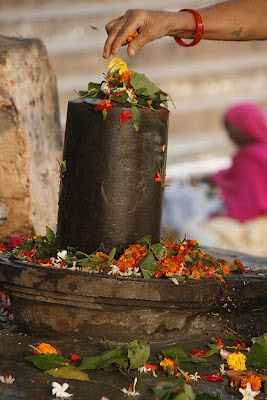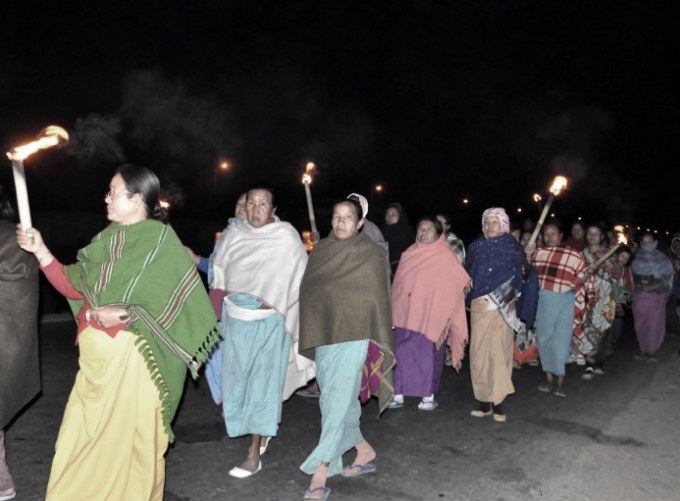State and Violence
A layman’s perspective on the state’s monopoly of violence, its inclination to employ military approach in solving political problems and the consequences with reference to Manipur
You cannot buy the revolution. You cannot make the revolution. You can only be the revolution. It is in your spirit, or it is nowhere.
― Ursula K. Le Guin, The Dispossessed
How do we get our nationality? In political science, we acquire it through two main ways: jus soli or jus sanguinis. By jus soli, we obtain a nationality through our birth; and by jus sanguinis, we obtain it from our parents belonging to a specific country. There are some other ways as well including naturalisation, marriage to a person of a particular nationality and special categories as in granting citizenship for those persons who are born from an assisted reproductive technology.
We are the subject of a nation; it is like our destiny and generally we become one by default through citizenship. So, an artificial label of nationality can be molded as a natural product just as in we are naturally an Indian—such is the power of a state. I belong to a region where this concept of modern state and citizenship is still a strange phenomenon because most of us are busy in defying the Indian sovereignty and confronting ethnic hostilities on one hand and on the other, in living our lives miserably with an identity crisis on the other. In between, it is the tragedy of life in an underdeveloped region.
Somehow ethnic nationalism has built a bridge from our former sense of a group or community to the trends of submitting to the state while abandoning our natural rights. However, in this transformation, the state is using all means, force, violence and other forms of coercion to streamline the new-found realisation of a nationality and citizenship.
Again, if we consider political science, we have given up some of our natural rights and submitted ourselves to the state on the belief that it will be mutually beneficial and that the state will exist for the common good. However, it is wretched when we cannot enjoy even the most fundamental rights to live and liberty. This basis alone is sufficient to justify the elimination of state and start a new collective life based on mutual agreements and as sensible, logical human beings.
In olden days there were kingdoms and village republics, before the British and then the Indian occupation of the region. The conflict arising out from different articulation of the concepts of state, the right to self-determination and using violence as a political means by both state and nonstate actors have destroyed the societies into bits and pieces. Observers note that in a place like Manipur, the psychological effects of brutality and hostility from the groups of gunmen—who consider themselves as sons of the soil, the patriots and the nationalists belonging to both the camps of the government and their adversaries—are getting profound each day.
By the book
According to Max Weber, the state is ‘a human community that claims the monopoly of the legitimate use of physical force within a given territory’. Weber also believed in the rational-legal authority of the modern state, which in his views implies that ‘legitimacy is derived from the belief that a certain group has been placed in power in a legal manner, and that their actions are justifiable according to a specific code of written laws’.
This legitimacy is the genesis of our problems.
Several reasons might have compelled the state to take the drastic step of resorting to violence but on any level it is illegitimate. The Indian state is as well above the Constitution as evident from how the it snubbed the recommendation by the Supreme Court on repealing the Armed Forces (Special Powers) Act. Truth be told, it was not even the government but the ‘master’ ideologies of the military experts—the kind of people who have no sense of anything beyond the parochial notion of nationalism and patriotism. (Well, personally, they are just doing a job, just like a barber cuts hair or a web developer writes code. It is just a fashionable trend to say one is fighting for a country. It is also funny how they are always on a morally high ground of nationalism.)
If we look back in history, nation building was a military responsibility from day one. Who was that Indian nationalist who asked if there was any brigadier in the region in the wake of resistance from Manipur regarding its merger into India? For the record, that was just after the departure of the British imperialists. Is it some sort of Fanon’s idea of oppressed people becoming the persecutors?
Now, isn’t it ironical that the state has appropriated the monopoly of violence while there are opponents who not only challenge their domination but also run a parallel government?
The state’s system of organised violence is similar to the agenda of the militant organisations. If we take into account of our living experience, both of them are nothing but a mess. The state uses draconian laws, extrajudicial approaches, sometimes acting against the rules it had made and then, its agencies are also involved in extortion cases and bomb blasts. The militants, on the other hand, have lost sense of what the head and the tail are, except the fact that the movement is underway.
Statists are rigid with the social and economical inevitability that only the state can provide, but in our case the representatives are in cahoots with the militants and government officials in looting the public exchequer in this place where infrastructure and means for development are non-existent. Now the joke is on the statists, rational-legal authority, legitimacy, justifiable actions and the code of written laws. With no accountable and effective state security institutions, the state’s monopoly of violence is worse than HIV-AIDS. At least we can take some precautions to stay away from HIV but the gunmen roam openly around the towns and villages. Besides killing, they rape and harass the people once in a while as a mark of their tribute to the nation.
Idealism and reality
Ideally, the state has a condition in which administration and governance are run under a genuine civilian authority, so are its police and armies; and all the personnel should conform to the norms and principles. Yes, ideally. But that has never been the case. Besides, in conflict-torn areas there are concepts of disarmament and demobilisation that provide a space for building a modern living condition. On the ground, however, those necessary elements are clearly scattered everywhere but the places they are supposed to be.
To Frederick Engels, the culture of the state is the culture of war; war is the business of the state; and it is the military leader who becomes the leader of the state. To Slavoj Žižek, generally, ‘violence and counter-violence are caught in a deadly vicious cycle, each generating the very opposite it tries to combat’. To Hannah Arendt, ‘The very substance of violent action is ruled by the question of means and ends, whose chief characteristic, if applied to human affairs, has always been that the end is in danger of being overwhelmed by the means.’
Alternatively, there is a danger that the political means of using violence will overwhelm the end as the state showcases its culture of violence in a vicious cycle of attacks, counterattacks and more violence.
We are not interested in what comprises violence and what not. Likewise, there is little use in finding what contains in legitimacy and what not. We can leave them to the researchers in humanities; and we have too little time. Simply it is the political obligation of an individual in a society. There is no ideal state but just a simple condition of living in which we can enjoy our freedom, bask in the glories of living and if time permits, see in it what is so special in living on occasion.
However, the existing conditions have sucked our blood dry, leaving no option but to take a step back and chew over it. This also leaves us with the notion that state and violence are not separate entities but the two faces of just one creature. All the line differentiating political violence and mere crimes have disappeared, thanks to the government security agencies. A few people prefer to label such a violent-torn state as defunct or dysfunctional but a spoilt food is spoilt, it is not a food anymore. Period.
The consequences of state terrorism and violence are felt all over the place. This is as well a global phenomenon in the so-called highly advanced 21st century. Elsewhere in the world, for instance, the US bribes the monarchies in West Asia—developing their economies while the US keeps creating the nastiest of extremist organisations. It is no different, especially in Northeast India, how the army and paramilitary forces are hell-bent on recognition that they would even kill civilians. All of these sound like the corny scenes in a B-grade film when the characters get ready for a military expedition as they blacken their face, check their guns, get ready to jump off to go to a war. Sheer ridiculous.
If we really dig into the consequences, the list will be endless. First of all, we can only hint the emergence of organisations working on broad human rights issues plus groups who are campaigning for people who have disappeared after police arrest and for victims who have been killed in fake encounters and so on. The physical injuries, long-term ailments from police brutality, psychological problems, social isolation, loss of educational and employment opportunities and expenditure on treatment—many of these are not even newsworthy and saying the wound is deep would just be an understatement.
How about the social, political and economic consequences? How is a society build on a foundation of fear and intimidation ever going to be good? If the state is enough, there are more gunmen, the state’s enemies, to make sure you are not out of the loop of all this mess.
Conclusion
To summarise, the state is the main problem. It is artificial, power hungry, unthinking and too mechanical. On top of that, it is the primary source of violence in our society.
Height of comedy
India talks about safeguarding democracy and human rights in international forums.
Reading materials
• Politics as a Vocation – Max Weber
• On the Postcolony – Achille Mbembe
• Reflections on Violence – Hannah Arendt
• The Dispossessed: An Ambiguous Utopia – Ursula Kroeber Le Guin
• Rethinking Violence: States and Non-State Actors in Conflict – Ed. by Erica Chenoweth and Adria Lawrence
• State Repression and the Domestic Democratic Peace – Christian Davenport









Comments
Post a Comment